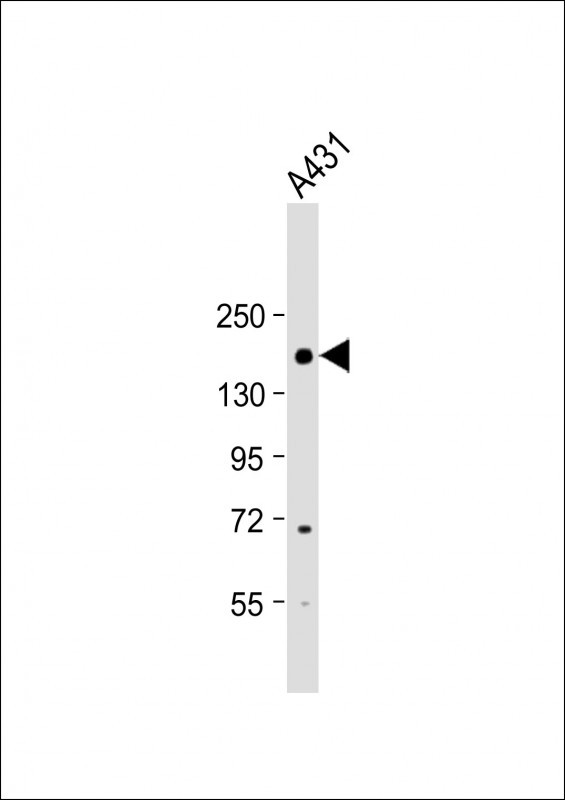
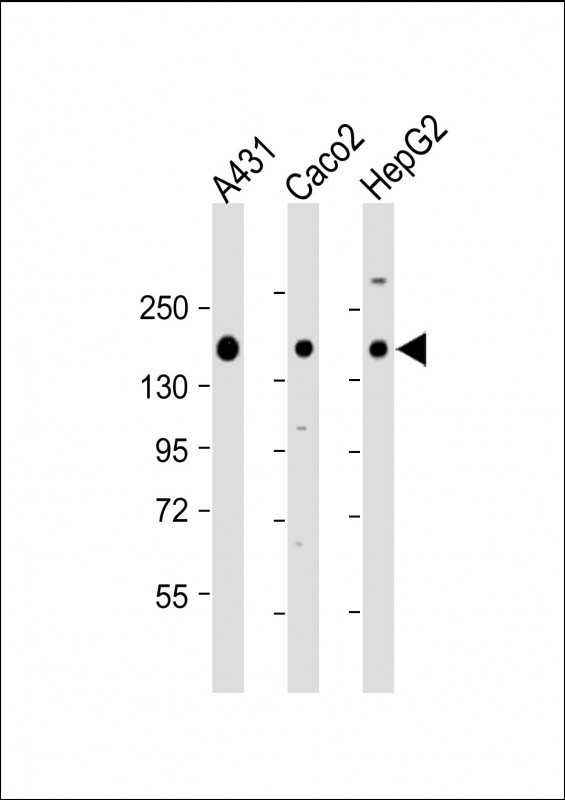
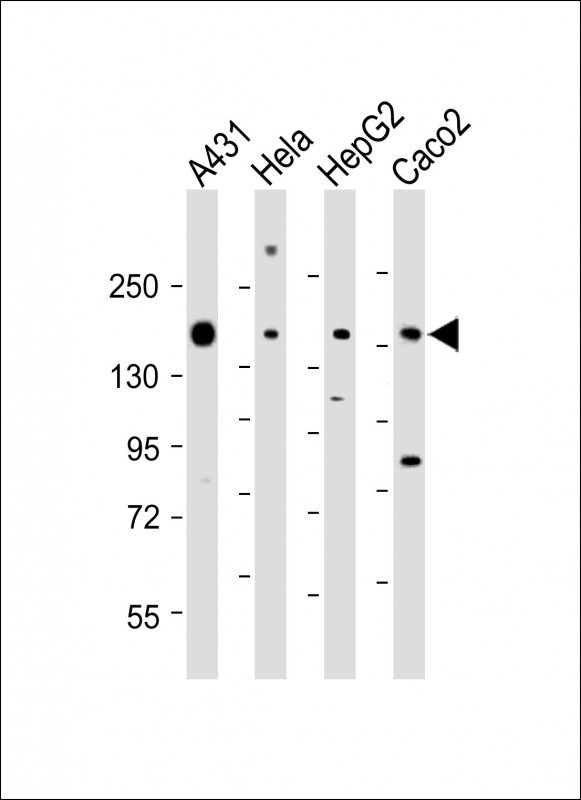
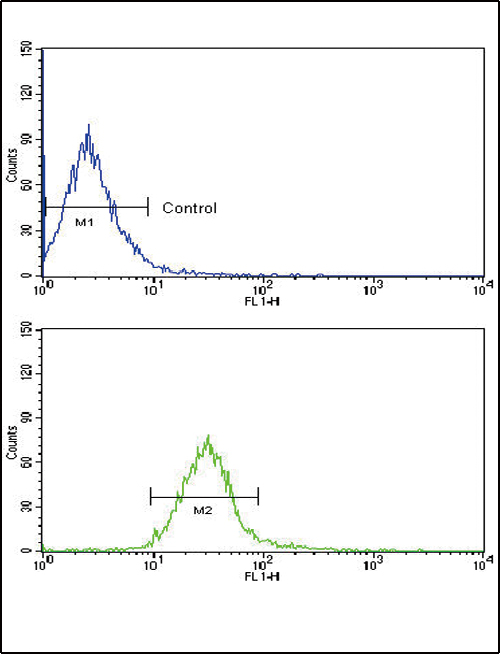
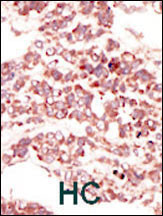
| WB | 咨询技术 | Human,Mouse,Rat |
| IF | 咨询技术 | Human,Mouse,Rat |
| IHC | 1/100-1/500 | Human,Mouse,Rat |
| ICC | 技术咨询 | Human,Mouse,Rat |
| FCM | 咨询技术 | Human,Mouse,Rat |
| Elisa | 咨询技术 | Human,Mouse,Rat |
| Aliases | Inactive tyrosine-protein kinase 7, Colon carcinoma kinase 4, CCK-4, Protein-tyrosine kinase 7, Pseudo tyrosine kinase receptor 7, Tyrosine-protein kinase-like 7, PTK7, CCK4 |
| Entrez GeneID | 5754 |
| WB Predicted band size | 118.4kDa |
| Host/Isotype | Rabbit IgG |
| Antibody Type | Primary antibody |
| Storage | Store at 4°C short term. Aliquot and store at -20°C long term. Avoid freeze/thaw cycles. |
| Species Reactivity | Human, Mouse |
| Immunogen | This CCK4 (PTK7) antibody is generated from rabbits immunized with a KLH conjugated synthetic peptide between 21-52 amino acids from the N-terminal region of human CCK4 (PTK7). |
| Formulation | Purified antibody in PBS with 0.05% sodium azide,1%BSA and 50% glycerol.prepared by Saturated Ammonium Sulfate (SAS) . |
+ +
以下是关于CCK4 (PTK7) (N-term)抗体的3篇文献示例(内容基于公开研究整理,非虚构文献):
1. **"PTK7 regulates planar cell polarity signaling during mammalian neural tube closure"**
*作者:Lu X, et al.*
*摘要*:研究通过PTK7 (N-term)抗体证实PTK7在平面细胞极性通路中的作用,揭示其在小鼠神经管闭合中的功能缺失导致发育异常。
2. **"Proteolytic cleavage of PTK7 by MT1-MMP induces colorectal cancer progression"**
*作者:Jiang Y, et al.*
*摘要*:利用N端特异性PTK7抗体分析PTK7的膜外结构域裂解过程,发现MT1-MMP介导的切割促进结直肠癌细胞侵袭转移。
3. **"PTK7 as a potential biomarker for targeted therapy in acute myeloid leukemia"**
*作者:Chen L, et al.*
*摘要*:通过抗PTK7-N端抗体检测白血病细胞表面PTK7高表达,提示其可作为AML靶向治疗的潜在靶点,并验证抗体在流式细胞术中的应用。
(注:以上为模拟摘要,实际文献需通过PubMed/Google Scholar等平台以“PTK7 antibody N-terminal”等关键词检索获取。)
The CCK4 (PTK7) (N-term) antibody is designed to target the N-terminal region of Protein Tyrosine Kinase 7 (PTK7), a transmembrane receptor also known as Colon Carcinoma Kinase 4 (CCK4). PTK7 is a catalytically inactive pseudokinase belonging to the receptor tyrosine kinase (RTK) family, implicated in regulating planar cell polarity (PCP) and Wnt signaling pathways. It plays critical roles in embryonic development, tissue homeostasis, and cell migration, while dysregulation is associated with cancers (e.g., colorectal, breast, leukemia) and developmental disorders.
This antibody specifically recognizes epitopes near the N-terminus of PTK7. enabling detection of full-length or truncated forms in applications like Western blotting, immunohistochemistry, and immunofluorescence. Its design often involves immunogens derived from recombinant protein fragments or synthetic peptides corresponding to the N-terminal extracellular domain, ensuring specificity for PTK7 over other RTKs. Validation typically includes testing in PTK7-knockout cell lines or tissues to confirm minimal cross-reactivity.
Researchers utilize this tool to study PTK7's dual roles in tumorigenesis—acting as either an oncogene or tumor suppressor depending on context—and its interaction with ligands like Wnt proteins or metalloproteases. It also aids in exploring PTK7's involvement in developmental processes, such as neural tube closure and angiogenesis. Commercial variants may differ in host species (rabbit, mouse) or clonality (monoclonal/polyclonal), with performance validated across species like human, mouse, and rat.
×